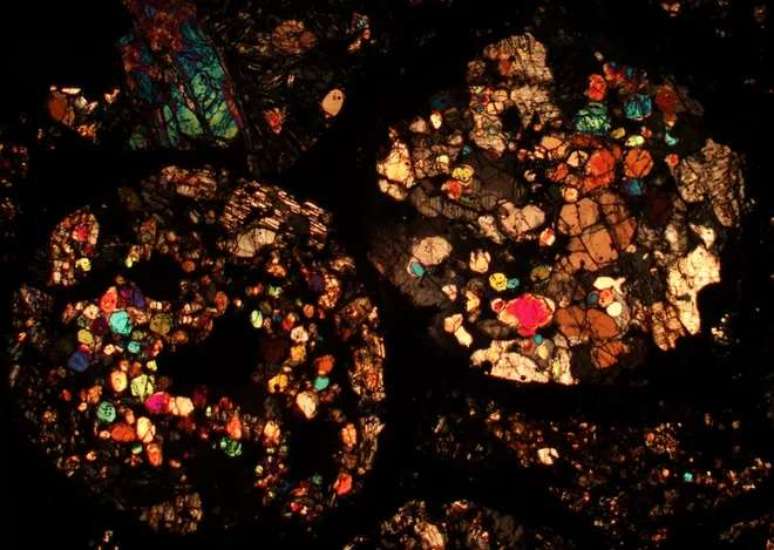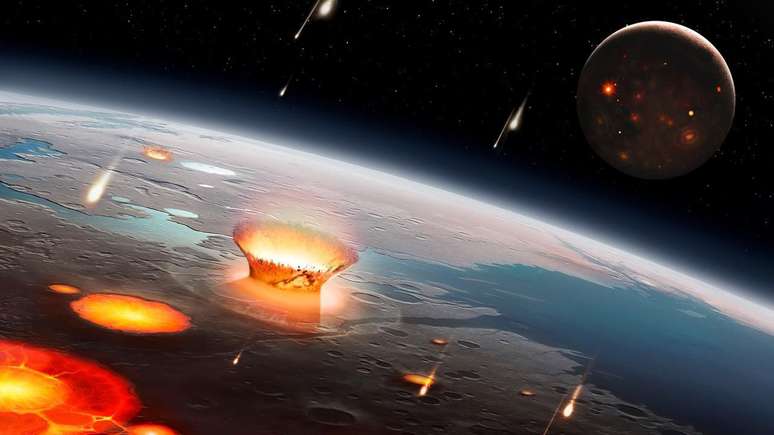Analysis of several meteorites has shown that some have isotopes of potassium, mixed differently from most chemically “processed” meteorites.
The Earth appears to have received potassium with the “help” of meteorites that crashed on our planet in the past. The conclusion comes from a study by researchers Nicole Nie and Da Wang, of the Carnegie Institute, in the United States, and of the Chengdu University of Technology, in China. The results obtained can help scientists better understand the formation processes of the Solar System.
- How was the Solar System formed?
- Meteorites help discover the original formation of the Solar System
Scientists from the institute have been working on trying to unravel the origin of the volatile elements and, according to all indications, some of them may have arrived on Earth “hitchhiked” with meteorites of the type carbonaceous chondrite, one of the most primitive. To investigate this possibility, the team studied the ratio of three potassium isotopes in samples from 32 different meteorites.
The advantage of the element is that it is moderately volatile, that is, it has a relatively low boiling point, which allows it to evaporate quickly. However, this feature ends up making it difficult to find the isotope proportions of volatile elements, which reveal important information about the past of the Solar System.

Nie explains that the extreme conditions inside stars allow them to produce elements through the nuclear fusion, forming the material that will be used by subsequent stellar generations. Some of the material formed inside them can be ejected into space, accumulating in clouds of gas and dust.
4.5 billion years ago, one of these clouds collapsed on itself and formed the Sun; what remained of the material gave rise to planets, asteroids and meteorites. “By studying variations in the isotope record preserved in meteorites, we can reconstruct the original materials from which they formed and construct a geochemical timeline of the evolution of the Solar System,” said Wang.
They found that some of the carbonaceous chondrite meteorites, formed in the Solar System, have multiple isotopes of potassium produced by supernova. Non-chondritic carbonaceous meteorites have the same proportions as observed on Earth and in the rest of our system.
This suggests that the material that formed the Solar System was not evenly distributed between the inner and outer parts (like poorly mixed cake batter). Since the pattern of potassium isotopes before the formation of the Solar System, found in non-chondrite carbonaceous meteorites, matches that of Earth, they are likely responsible for the potassium on our planet.
The article with the results of the study was published in the journal Science.
Source: Science; Through: Carnegie Science
Trending on Canaltech:
- Always thought strawberry dots were seeds? Found it wrong!
- 5 reasons NOT to buy the Porsche Carrera 911 S
- Where does mercury come from and why should we care?
- The oldest art in the world was not created by humans
- Rocks formed from plastic are discovered on an island in Espírito Santo
- British man goes to hospital for ear infection, discovers brain cancer
Source: Terra
Rose James is a Gossipify movie and series reviewer known for her in-depth analysis and unique perspective on the latest releases. With a background in film studies, she provides engaging and informative reviews, and keeps readers up to date with industry trends and emerging talents.






